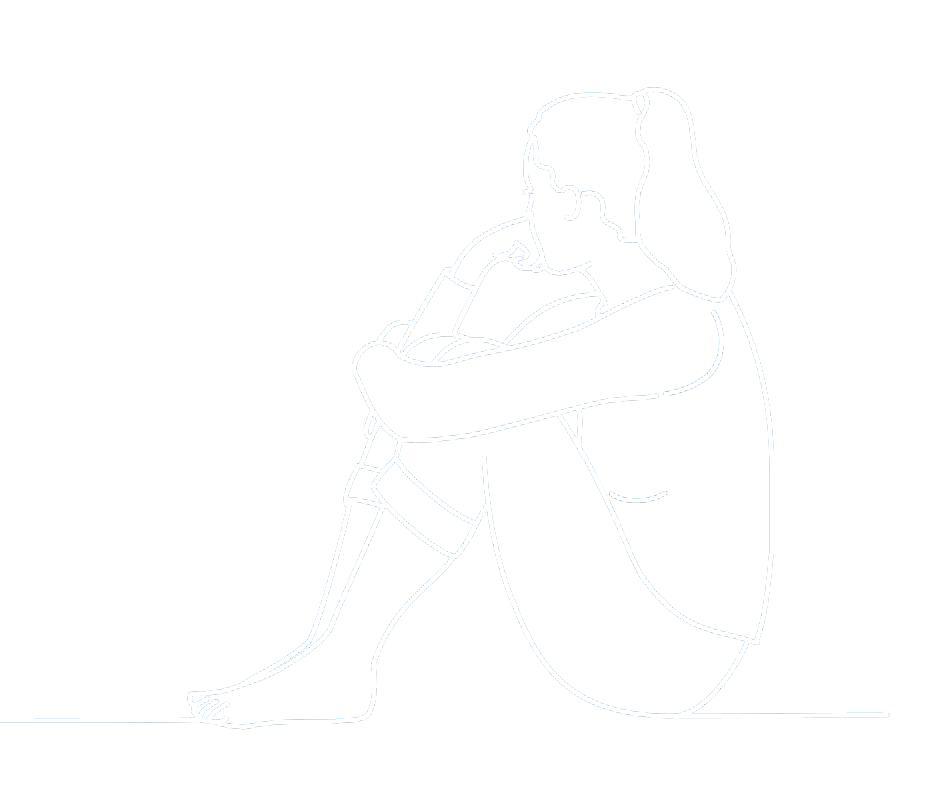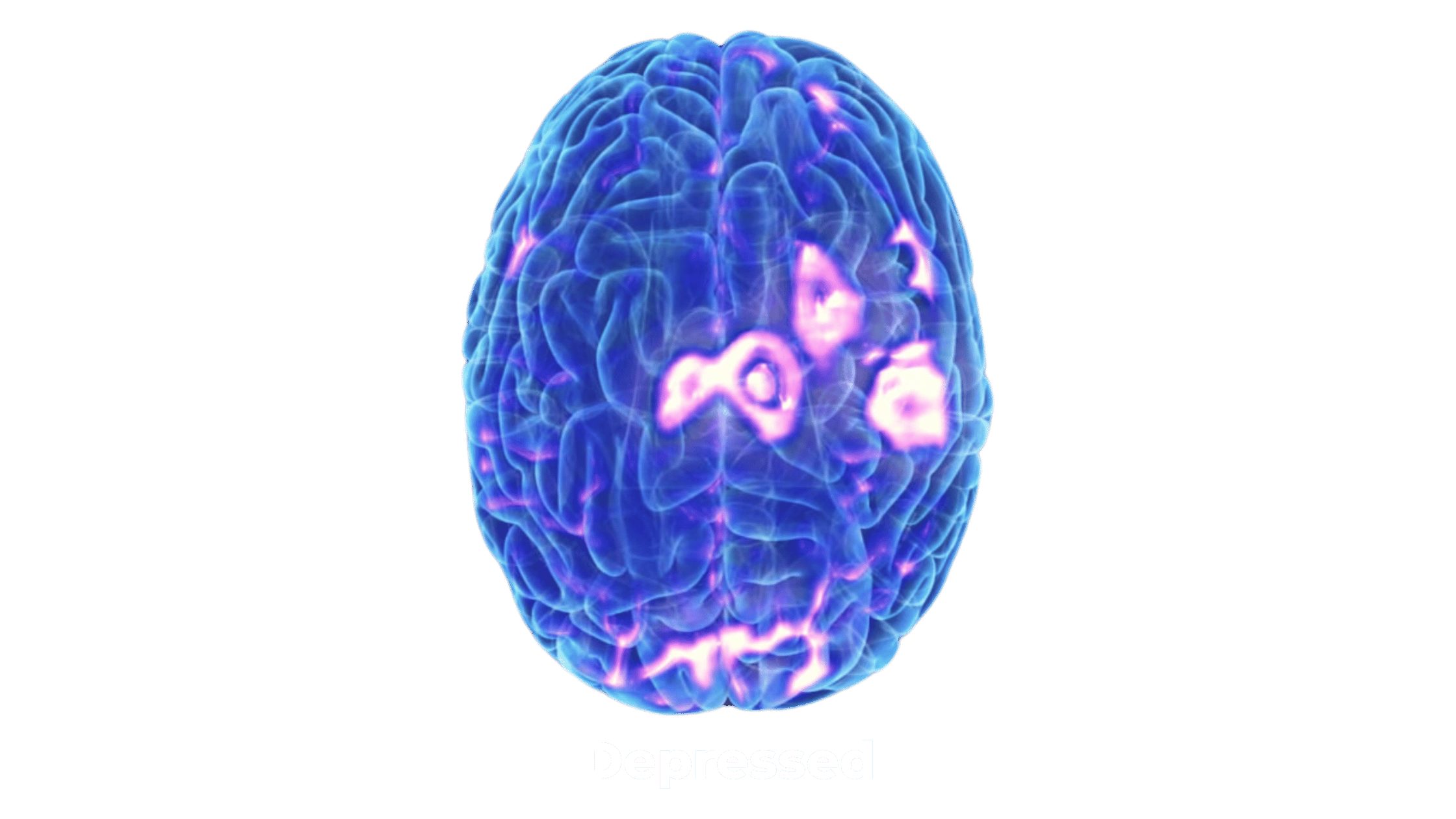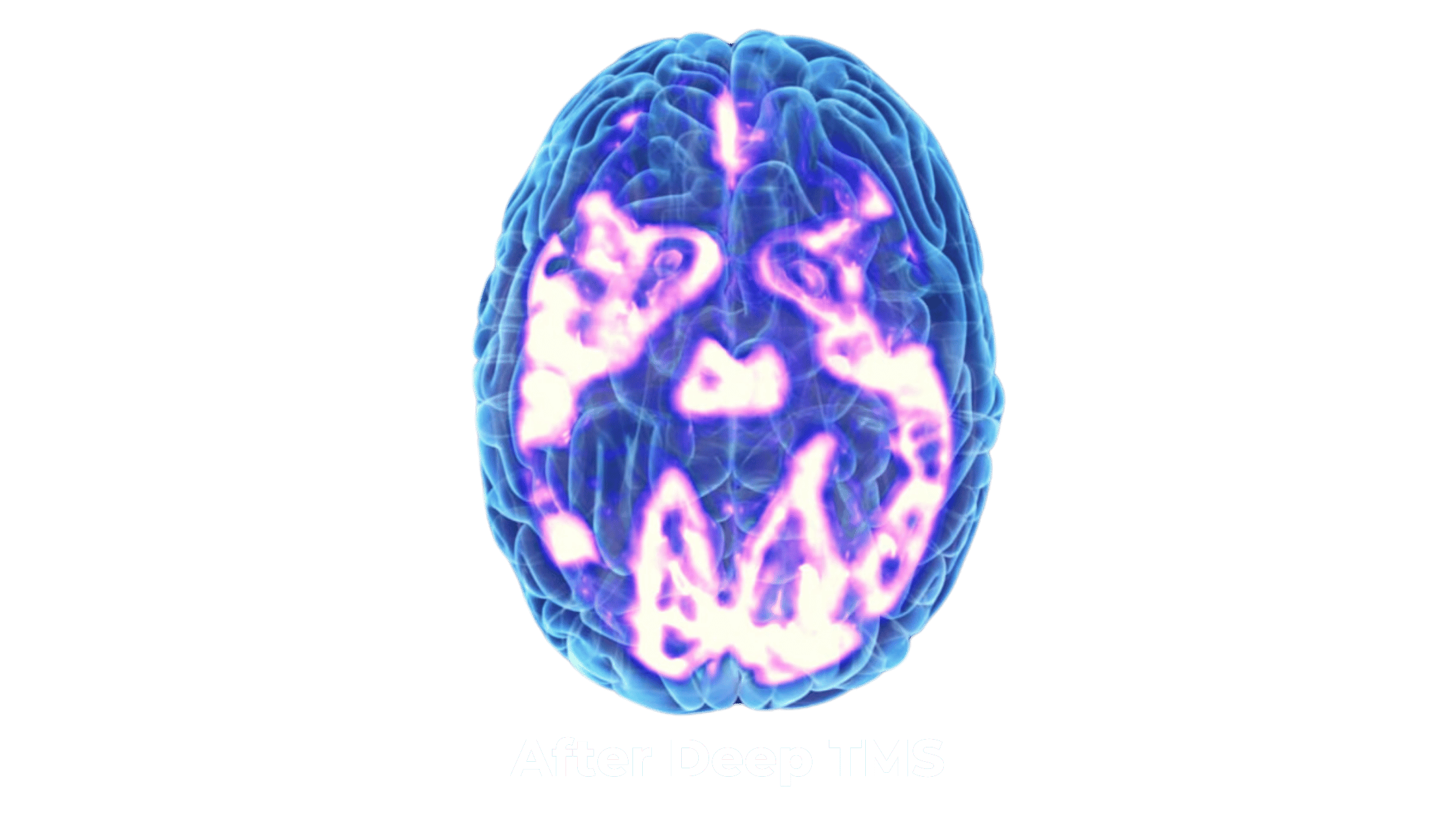TMS Therapy for Depression
A non-invasive, FDA-approved treatment offering hope for those battling depression. Get Started
Why Choose TMS Therapy to Treat Depression?
Experience a safe, clinically proven treatment designed for your unique needs:
If you’re struggling with depression that won’t relent, ReNu Brain Treatment Center offers a breakthrough option: Deep Transcranial Magnetic Stimulation (dTMS) therapy. With unparalleled effectiveness and a non-invasive, drug-free approach, dTMS provides hope for those who haven’t found relief with traditional treatments.
Non-Invasive and Drug-Free
No medications or surgery required. TMS is a comfy and drug-free treatment option
Minimal to No Side Effects
Unlike traditional antidepressants, most patients experience little to no adverse effects.
High Success Rates
Over 75% of our clients report significant improvements in their mood within just 10 days of treatment.
No Downtime
Resume your daily activities immediately after your session.
Personalized Care
Treatment plans tailored to your specific symptoms and goals.
What Types of Depression Can TMS Treat?
Major Depressive Disorder (MDD)
Major Depressive Disorder (MDD) is a serious medical condition marked by prolonged sadness, a lack of interest in life, and physical symptoms such as fatigue. Depression weakens the neural pathways that regulate emotional well-being, particularly in the prefrontal cortex and limbic system. This results in chemical and structural imbalances that exacerbate feelings of hopelessness and despair.
Deep TMS therapy uses targeted magnetic pulses to stimulate these weakened neural pathways, encouraging the brain to restore its natural ability to regulate mood. This non-invasive treatment provides relief by reactivating dormant neurons and rebuilding healthy neural connections.
Anxious Depression
Anxious depression is a subtype of MDD characterized by heightened anxiety alongside depressive symptoms. People with anxious depression often experience:
- Restlessness and excessive worry.
- Tension and physical discomfort, such as headaches or rapid heartbeat.
- Co-occurring symptoms of depression, including sadness and lack of motivation.
Deep TMS (dTMS) is FDA-cleared to address both the emotional and physical components of anxious depression. By targeting deeper brain regions, dTMS effectively alleviates symptoms of depression while reducing anxiety, providing a comprehensive approach to healing.


Treatment-Resistant Depression (TRD)
If medications or therapy haven’t worked, you may have Treatment-Resistant Depression (TRD). dTMS can stimulate new neural pathways and offer hope for recovery even when traditional approaches fall short.

How Are MDD and Anxious Depression Treated with TMS?
Both Major Depressive Disorder and anxious depression are treated using the same Deep TMS technology. However, treating anxious depression may involve specific protocols or adjustments tailored to address the unique anxiety component. This ensures a comprehensive approach to therapy.
Whether you’re struggling with MDD, anxious depression, or another subtype, our team at ReNu Brain Treatment Center tailors the TMS treatment to your unique needs for optimal results.
What is TMS and How Does It Alleviate Depression?
Transcranial Magnetic Stimulation (TMS) is a non-invasive, FDA-approved treatment that offers renewed hope for individuals battling depression, OCD, and anxiety.
Clinically proven and recognized as both safe and highly effective, TMS therapy uses magnetic pulses to stimulate the electrical components of the nervous system. ReNu’s Deep TMS has a success rate above 80%, helping patients regain control over their emotional well-being and improving their overall quality of life.
Why Deep TMS (dTMS) is Superior to Traditional TMS (rTMS)
- Deeper reach: dTMS stimulates broader, deeper brain regions, including the limbic system, which plays a crucial role in mood regulation.
- Enhanced efficacy: Proven to create lasting neural pathways for better emotional balance.
- Comprehensive treatment: Targets areas inaccessible to rTMS, making it a better choice for treatment-resistant depression.
- Proven Effectiveness: Over 75% of clients experience significant symptom relief, with many noticing improvements within just 10 days of treatment.
Your Journey with TMS Therapy
1
Initial
Consult
A thorough evaluation to ensure you’re a candidate for TMS therapy.
2
Personal Treatment Plan
Customized sessions based on your unique brain activity.
3
Comfy Therapy Sessions
Each session lasts about 20 minutes, in a relaxed, supportive environment.
4
Ongoing Support
Our team monitors your progress and makes adjustments to maximize results.
“Real People, Real Results”
Before TMS, I had tried varying combinations of medications and therapy. Nothing seemed to help with my depression. I was mad, sad, irritable, anxious, had an inconsistent sleep schedule, and was constantly overwhelmed. Life felt empty.The ReNu Brain Treatment Center accommodated my work schedule and the treatment was effortless.I cannot thank everyone at ReNu enough for giving me a new outlook on life!
Before going to the ReNu Brain Treatment Center I had severe depression. The people (staff) at ReNu TMS, have help me tremendously. I recommend it to anyone with depression.
Frequently Asked Questions
How Do I Know If I Am Depressed?
Depression manifests in various ways, and recognizing these symptoms is crucial for seeking help. Some common signs include:
- Persistent sadness or a low mood that lingers.
- Loss of interest or pleasure in activities that were once enjoyable.
- Changes in appetite, leading to weight loss or gain unrelated to dieting.
- Sleep disturbances, such as insomnia or excessive sleeping.
- Fatigue or a significant decrease in energy levels.
- Feelings of worthlessness or excessive guilt.
- Difficulty concentrating, thinking clearly, or making decisions.
- Thoughts of death or suicide.
Is TMS Therapy Safe?
Yes! TMS is FDA-approved and backed by numerous clinical studies for its safety and efficacy.
